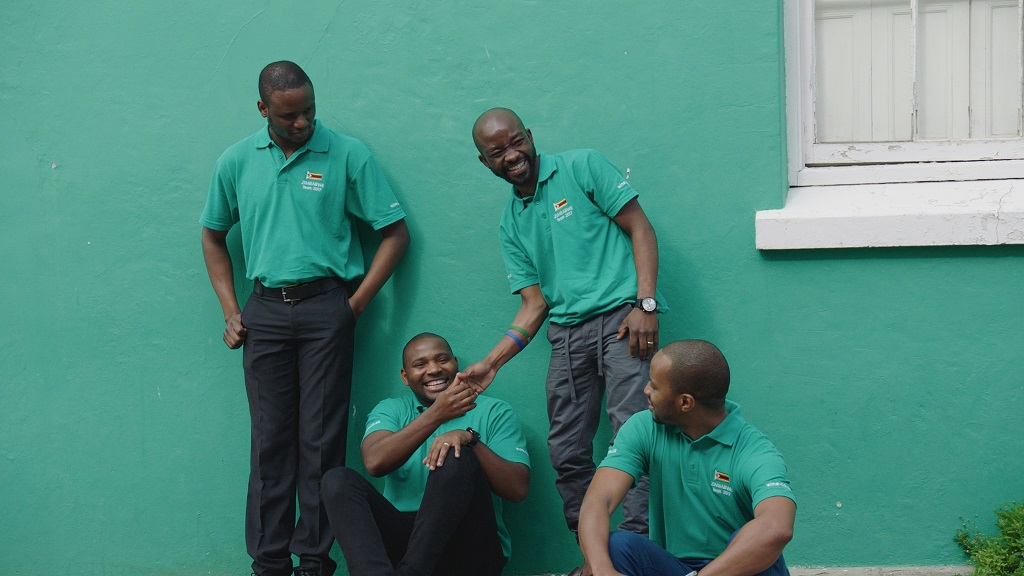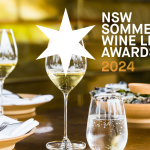Joseph Dhafana, Marlvin Gwese, Pardon Taguzu and Tinashe Nyamudoka in the film Blind Ambition. Still provided by Madman
Sommelier’s (or ‘somms’) stand at the end of the supply chain, providing insight and recommendations to consumers who pretend to know more than they do. However, this profession can be somewhat of an insider’s club. Harrison Davies spoke with somms from a variety of backgrounds to understand the barriers of entry for those who don’t fit the traditional image.
“Why can’t wine of origin be where the wine takes us?”
That’s the question posed by sommelier Tinashe Nyamudoka in the new documentary Blind Ambition, directed by Robert Coe and Warwick Ross, released in cinemas 3 March.
In the film, the Aussie documentarians shadow a group of Zimbabwean sommeliers who compete in the International wine tasting championships in Burgundy.
Through the runtime of the film we learn of the struggle in their homeland and the reasons they sought asylum in neighbouring South Africa – and how wine came to change their lives.

None of the gentlemen had tasted wine prior to fleeing their homeland and yet they found themselves in an industry they found initially unfamiliar.
The film also takes a look at the challenges for people like Nyamudoka to break into the industry when they don’t fit the image many have of a traditional sommelier.
Master of Wine Jancis Robertson, who helped orchestrate their trip to the championship and appears in the film, put it quite bluntly.
“The world of wine is very bad at diversity,” she said.
“It’s white faces from wall to wall.”
Becoming a sommelier is hard work, as there are several stages of training and several different levels of qualifications a somm can have.
The highest level, Master of Wine, is an extremely difficult title to achieve and is only held by roughly 270 people in the world.
This begs the question: what are the challenges that sit in front of someone not from a European background to become a sommelier?
Hurdles and glass ceilings
The industry is typically dominated by men with European backgrounds and, whilst there is very little hard data, estimates put the gender gap at 2-1 men to women.
This creates challenges, particularly for women and gender neutral people of colour, to get a foot in the door.
On top of the rigorous training required to obtain the skills and knowledge to do the job, things like finding mentors or support networks are made even harder for people without industry connections.
Zoe Pyo and Jewel John are both somms represented by Women and Revolution, a group that provides a network of support for women and gender fluid people throughout the wine industry.
They both reflected on the challenges they faced when getting into the work.
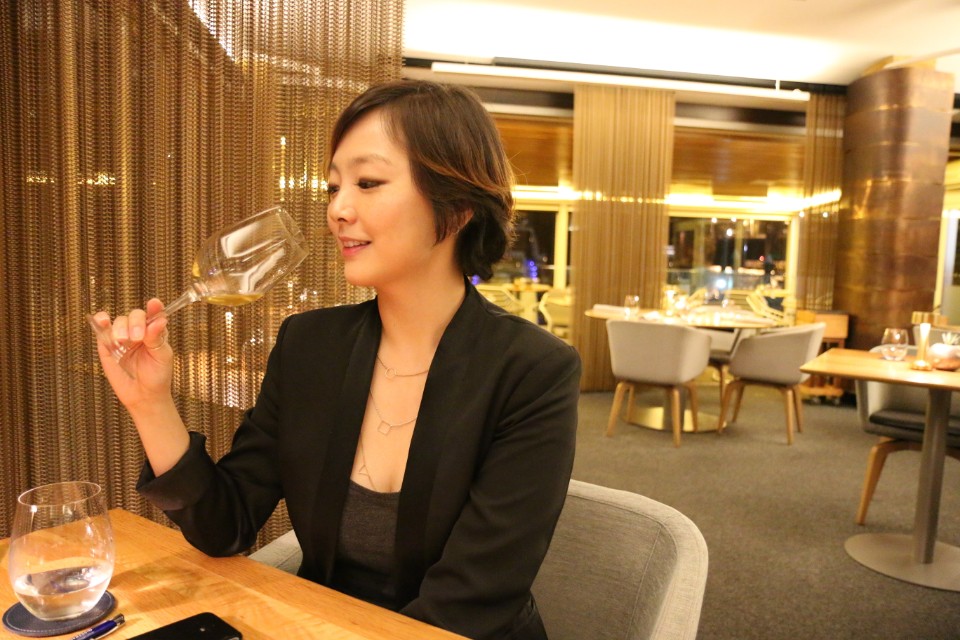
Pyo, formerly the somm at Sydney restaurants Quay and Pendolino, was born and raised in South Korea and did part of her study in China, where she discovered her love for wine.
She recalled trying wine for the first time.
“I was in Shanghai as an international student. One night I was invited to a fellow classmate’s birthday party. At the time I knew so little about wine that I can’t even be sure what it was exactly,” she said.
“It was so different to anything I’d had before that from there on in, I wanted to know more about the world of wine.”
After finding her passion she began pursuing a career in wine, something that was different from everyone else in her family.
With English as her third language, she said the written component of the exams were just the first challenge on the road to obtaining her certification
“Many of the exams involved in wine education and sommelier certification involve a written component, and because I struggled with this element, I felt I had to work twice as hard to convince my colleagues that I deserved to be there alongside them.”
On top of a language barrier, Pyo recalled prejudice she faced both from her peers and guests.
“In Australia, much of the culture around wine is Eurocentric, and people are often surprised to find a Korean woman in the sommelier role,” Pyo explained.
“My accent is seen as less sophisticated than a French or Italian accent and people assume that I don’t know anything about wine because I am an Asian woman.
“Guests have asked me to go get the sommelier when I have offered help with the winelist, and they have also asked to be served by a ‘more Australian’ sommelier.
“The solution, proposed by the manager in the interest of keeping the guest happy, was always for me to move to a different section or table.
“These incidents undermined my confidence in myself and made me doubt my abilities. In a role where confidence means so much, such discrimination was hard to overcome.”
Jewel John, who is newer to the field, echoed Pyo’s comments about discrimination in the workplace and elaborated on the casual racism they described as rife within the industry.
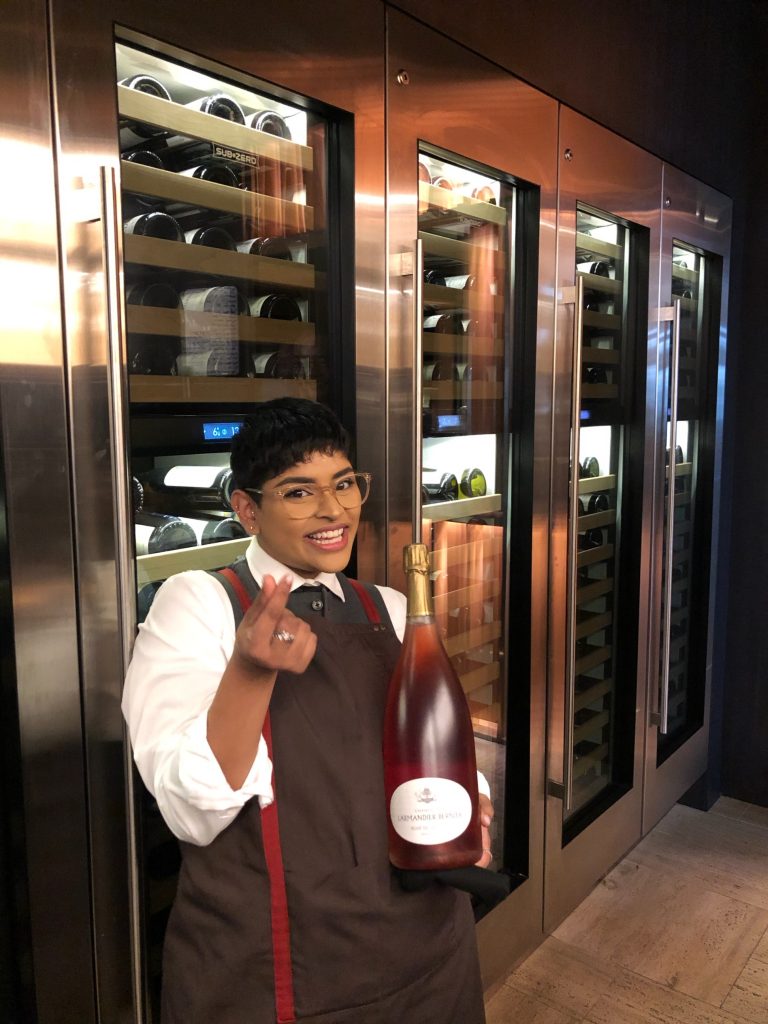
“It’s no secret that majority of people calling the shots in this industry are white and it was only after talking to other somms about their experiences did I fully understand the differences in our journeys,” John said.
“I was also constantly exploited and underpaid for my experience and knowledge; I was always the section waiter with extensive wine knowledge, but not enough to be a called a sommelier.”
The film touched on this, as the men, all refugees, found trouble breaking into an industry where they had little experience and knew no one.
Sommelier training is also expensive, necessitates a lot of resources as well as the ability to network with many people throughout the industry.
A WSET (Wine & Spirit Education Trust) diploma can run a student roughly $11,000 in total and recognition as an advanced CMS (Court of Master Sommeliers) qualification can run applicants at over $2000, without the guarantee of obtaining the qualification at the end.
John, originally from India, had to foot the bill for their training on their own and find a way to pay for the WSET course.
“The WSET courses are not cheap and at the time they didn’t offer scholarships to immigrants in Australia, most grants are only offered to permanent residents or citizens,” John said.
“As someone on a student visa, working 20 hrs a week on the books and more off the books, making minimum wage, it was stressful and difficult and made me want to quit at times.
“From the moment I had embarked on my wine journey in 2018, I tried to find a mentor, a friend, or a teacher in this industry for support and guidance,” they continued.
“I reached out to my professors and industry counsellors at university to hopefully put me in touch with anyone that worked in wine. I even attended as many wine events and tastings as possible without being strapped for cash.
Where to next?
We must ensure accessibility in ways of scholarships, networking, mentoring, etc. for marginalised groups and stop gatekeeping sommellerie. – Jewel John
Sommeliers are renowned for their passion of wine, and many argue that creating greater inclusivity within the field will only bring new perspectives and new ideas to the profession.
Inclusion won’t come without work, however, and both Pyo and John reflected on the changes and support networks that could be implemented to create better working environments for people throughout the wine industry, particularly sommeliers.
Pyo explained that management and venues should stand by their staff when faced with guests who exhibited racist and disrespectful behaviour.
“When I was moved into different sections to placate a racist guest who did not want to be served by someone who looked or spoke like me, it [showed] that profit of the venue was more important than the safety and wellbeing of the staff,” Pyo explained.
“If the Industry wants to become more inclusive, those who run businesses and wield power must be willing to examine this situation and have an honest conversation about how much value they really place on diversity and inclusion.
“The industry needs to shift its focus from the Eurocentric model of sommellerie and realise that it is one’s knowledge of wine and service skills that matter the most.
“Greater visibility of women, gender diverse people and people of colour in the industry will help to challenge the stereotypes, and will hopefully show others that a career in wine is possible for everyone.”
John echoed Pyo’s thoughts and listed several guiding principles that the industry should follow to improve working conditions for women, gender fluid people and people of colour.
“[Management should] listen to marginalised groups when they’re talking about problems and issues they’ve faced at work,” John said.
“Venues must implement and follow strict anti-racist and anti-transphobic policies and make sure each employee is thoroughly aware of them upon hiring. Venues must do more than just ‘deescalate the situation’ when a guest is being racist, homophobic, or transphobic towards staff.
“We must ensure accessibility in ways of scholarships, networking, mentoring, etc. for marginalised groups and stop gatekeeping sommellerie.”
Despite the challenges, both the somms wanted to create better conditions to bring more people to the discipline of sommellerie.
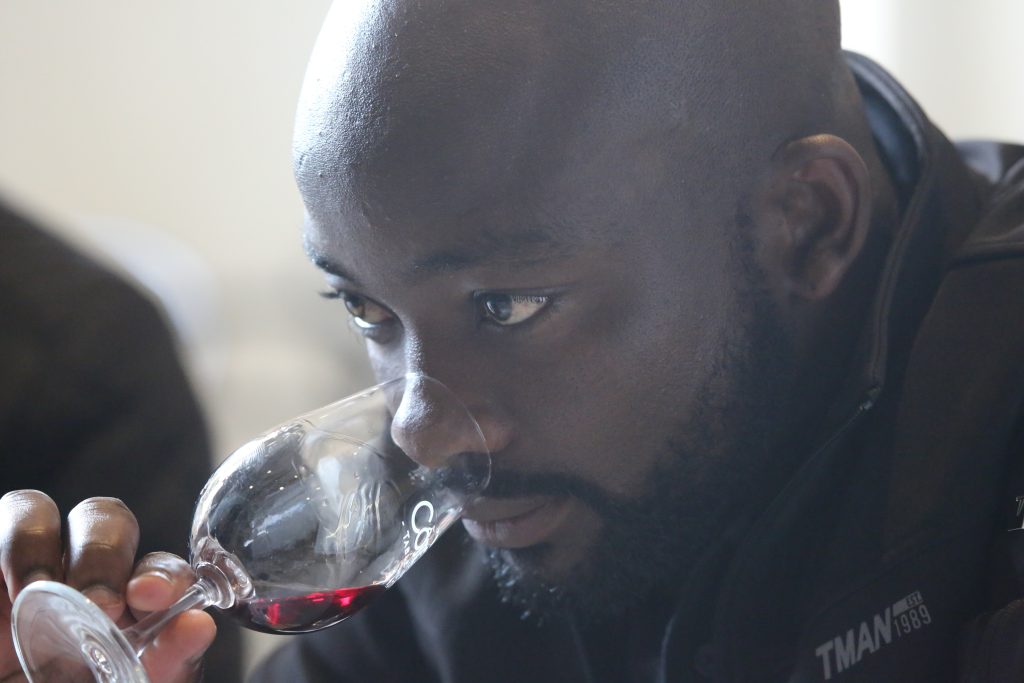
Both said that obtaining their qualifications and finding their passion for wine was the reason for their dedication and care for the industry.
“I would have to say the best part of my career has been the people I have met along the way who have been supportive and encouraging,” Pyo said.
“It has provided the opportunity to connect with people who share my passion, and my success.
“Secondly, just as rewarding is serving guests who have a true appreciation for the world of wine and acknowledge the place of a sommelier
“Guests who take on recommendations and say the simple acknowledgement and “thank you” makes my day when I am working because I know they recognise me as a sommelier.”
